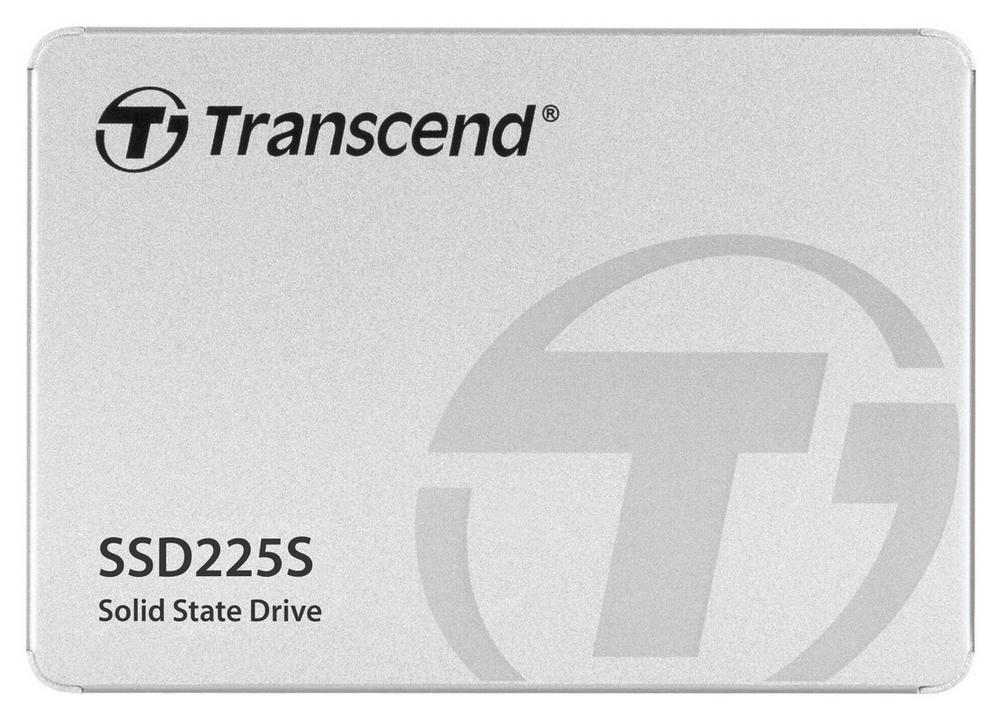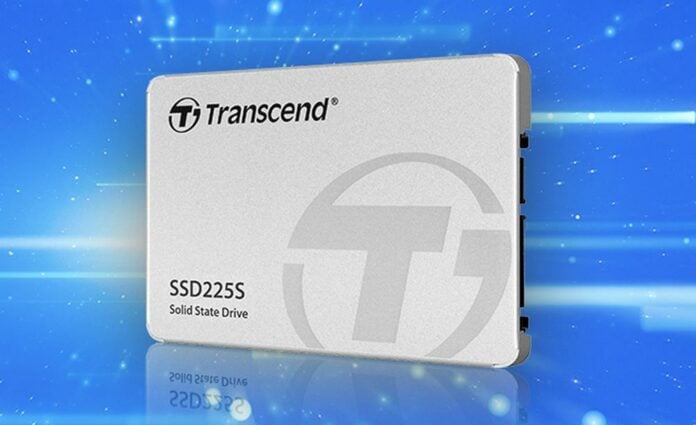Catering for the masses, Transcend has unveiled the 2.5in SSD225S SATA III 6Gb/s SSD featuring up to 560MB/s read speed, a three-year warranty, and good durability.
Transcend’s SSD225S is a classic SSD aimed at file storage and backups and uses the trusty SATA III interface. While its speed is limited by the 6Gb/s interface, it can nonetheless come close enough to its theoretical limit achieving 560MB/s on the largest model. Add to that 720TBW (Terabytes Written) endurance and you get a nice backup drive, without the slowness of a traditional HDD.
Though SATA is the limiting factor here, the upside is it provides much wider compatibility range. You can find a SATA port in pretty much any machine these days, and you can even use one of those SATA-to-USB enclosures without limiting throughput on newer ports.

720TBW on a three-year warranty drive gives us 650GB written per day, which is very good indeed. Plus, this doesn’t mean that it will instantly stop working after reaching this milestone. You may get lucky and keep writing to it for years to come. Just keep a backup somewhere else, especially if you do come near or exceed the rated TBW.
Transcend markets the drive as having superior durability and stability without compromising on performance, but haven’t mentioned which controller and NAND flash is being used. We only know there is an SLC cache, which indicates the absence of a DRAM chip. However, it still offers TRIM, LDPC, and S.M.A.R.T. monitoring via Transcend’s SSD Scope software.
The following four capacities are offered:
| 250GB | 500GB | 1TB | 2TB | |
| Interface | SATA III | SATA III | SATA III | SATA III |
| Read Speed (MB/s) | 500 | 530 | 550 | 560 |
| Write Speed (MB/s) | 330 | 480 | 500 | 500 |
| Random Read IOPS (K) | 40 | 50 | 65 | 55 |
| Random Write IOPS (K) | 75 | 75 | 75 | 80 |
| TBW (Terabytes Written) | 90 | 180 | 360 | 720 |
| Form Factor | 2.5in | 2.5in | 2.5in | 2.5in |
If you are coming from an M.2 SSD, these IOPS numbers may seem low, yet they are normal as the SATA protocol is old and doesn’t take full advantage of intrinsic performance of SSDs.
Finally, a note of disappointment is there are no 4TB or 8TB models here; maybe sometime down the line. They are much needed for a model marketed for backups.


